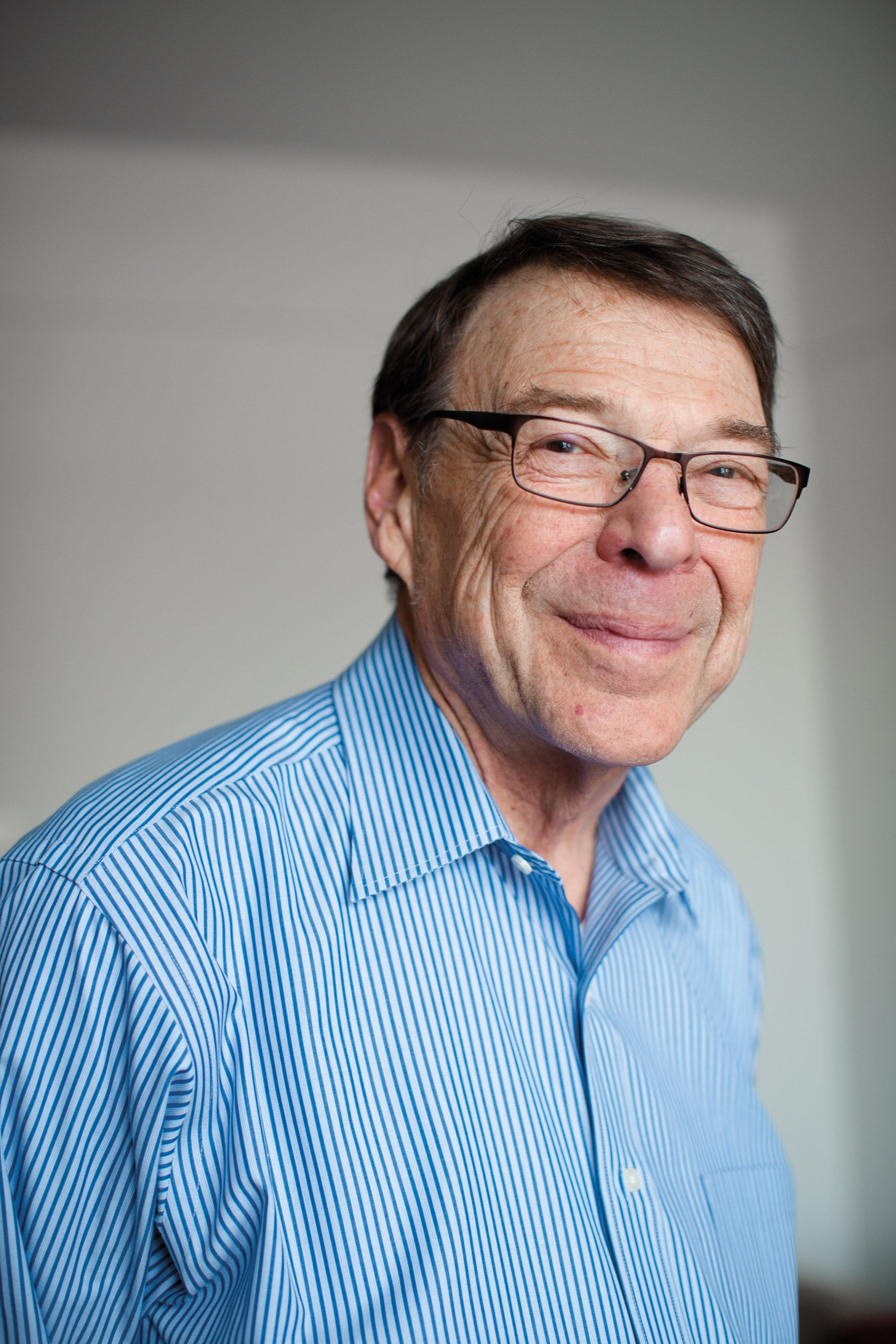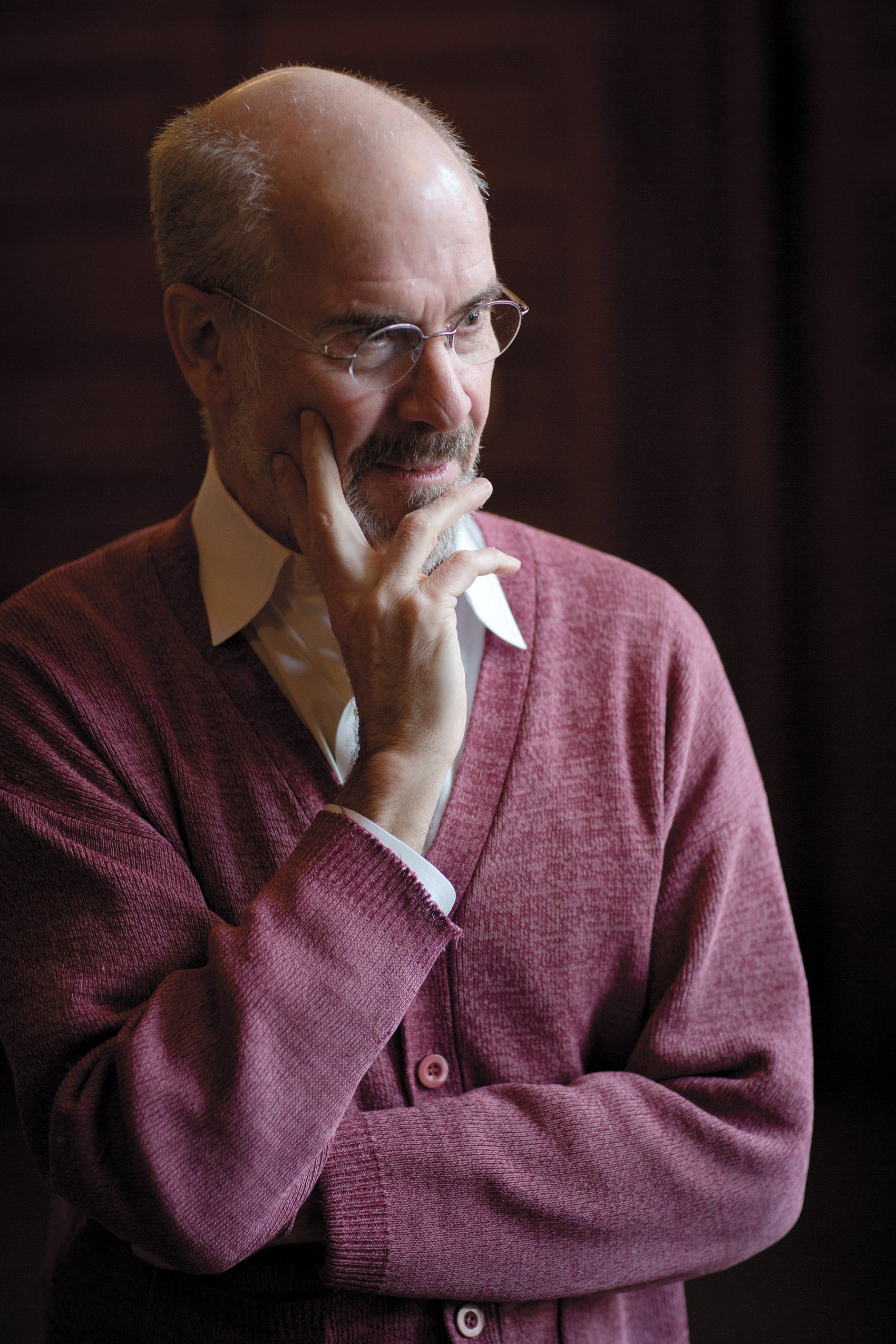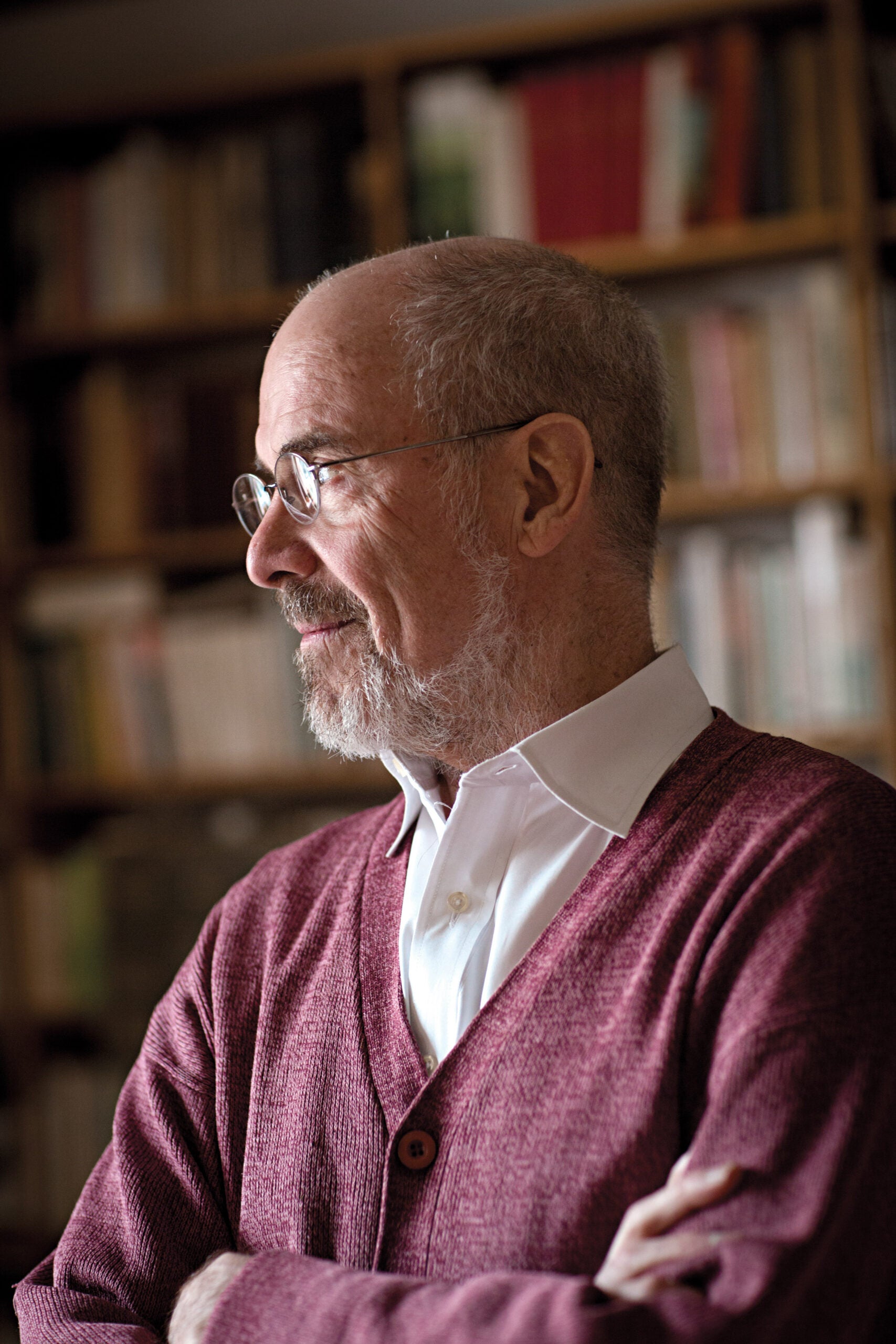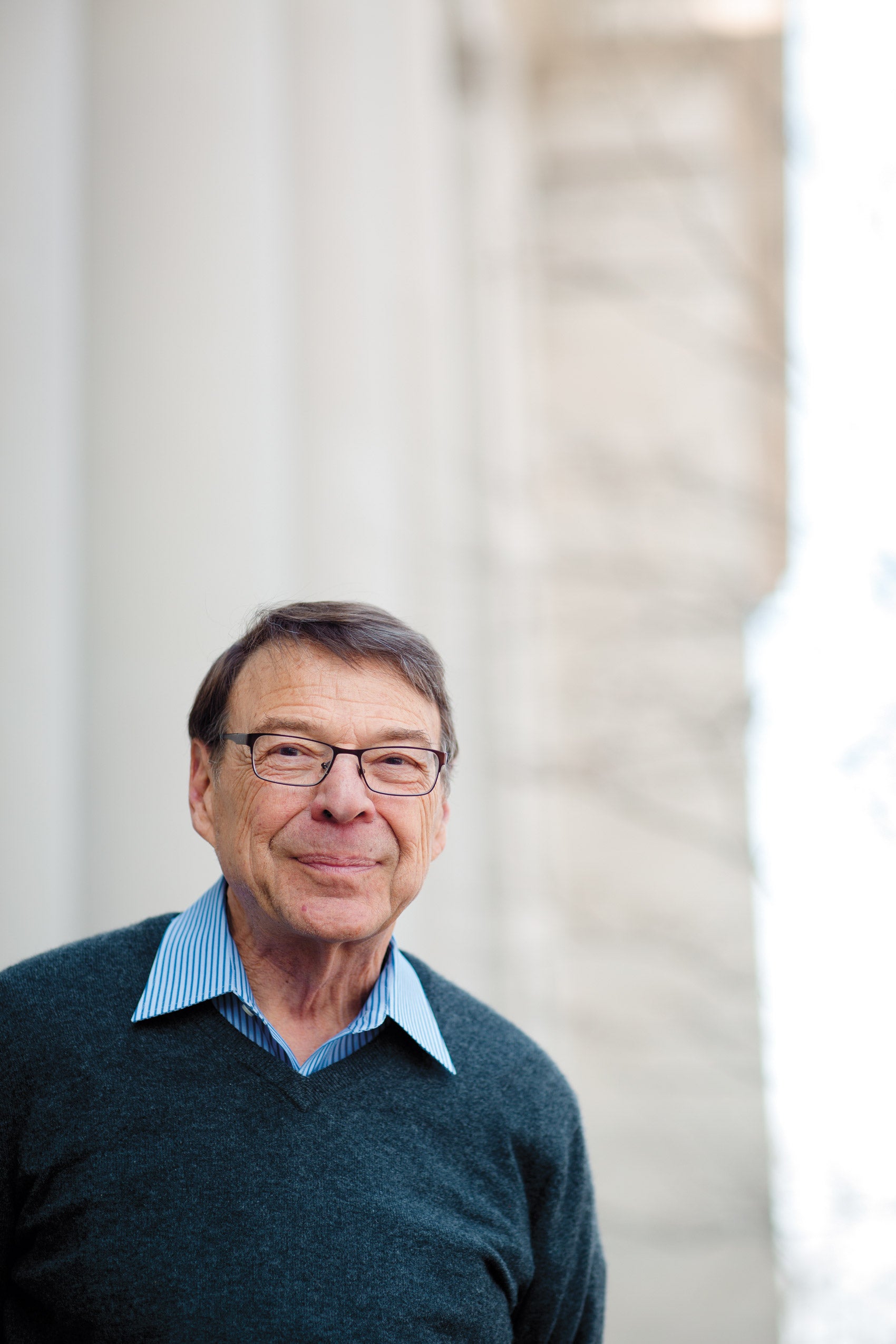In July, HLS Professors Daniel Halperin and Duncan Kennedy will retire. The Bulletin asked two colleagues for reflections.
Undisguised Value
Daniel Halperin has shaped U.S. tax policy and tax practitioners
by Alvin C. Warren Jr.
Daniel I. Halperin ’61 will retire at the end of this academic year after more than a half-century as a tax lawyer, professor and government official. Unlike most law professors starting out today, Dan worked as a lawyer for a decade—at the firm Kaye Scholer and in the government—before entering law teaching. Serendipitously, he became Kaye Scholer’s expert in the new field of pension law in his second year, after the sudden departure of the only lawyer at the firm with any experience in the field.
In 1967, Dan moved to Washington to join the staff of the Treasury Department’s Office of Tax Policy, which is the executive branch office responsible for tax regulations and legislative proposals. At the time, the assistant secretary of the Treasury for tax policy was Stanley S. Surrey, a legendary Harvard Law School professor who served as the principal tax policy officer for Presidents Kennedy and Johnson. (He had also been Dan’s teacher in a course on the taxation of international income.)
Although tax law is frequently contested and often political, Surrey’s rule was that his staff was to consider only the criteria of good tax policy in developing regulations and legislative proposals. Political issues were to be left to him, the Treasury secretary and the White House.
Dan flourished in this environment. Thanks to his practice experience, he played a key role in the development of the Johnson administration’s initial bill for pension security, which would evolve into the historic Employee Retirement Income Security Act, enacted by Congress in 1974.
“Dan is usually the first to see a solution (or why a solution may be impossible).”
Alvin Warren
Surrey further believed that the Treasury should not only focus on current regulatory and legislative issues, but also analyze and produce proposals for long-term reform. Dan played an important role in the evolution of these proposals, which eventually led to the Tax Reform Act of 1969. Although a lifelong Democrat, he remained at the Treasury as deputy tax legislative counsel after the election of President Nixon in order to see the proposals through to enactment.

Stimulated by his work at Treasury, Dan joined the faculty at the University of Pennsylvania Law School in 1970. His first major article as a professor, “Business Deduction for Personal Living Expenses: A Uniform Approach to an Unsolved Problem,” 122 University of Pennsylvania Law Review 859 (1974), remains a classic 40 years later.
In the presidential campaign of 1976, Jimmy Carter famously called the U.S. income tax system a “disgrace to the human race.” After the election of President Carter, Dan returned to the Treasury, first as tax legislative counsel and then as deputy assistant secretary. In those positions, he was instrumental in the formulation of the president’s 1978 tax reform proposals, some of which were enacted in the bipartisan Tax Reform Act of 1986.
In 1981, Dan returned to law teaching, this time at Georgetown, where he would remain for 15 years. He also returned to practice as a consultant for Ropes & Gray. It was during this period that Dan’s most famous article, “Interest in Disguise: Taxing the Time Value of Money,” 95 Yale Law Journal 506 (1986), appeared. Stemming from problems he had dealt with at Treasury, this article remains the seminal analysis of a series of issues that are still not fully resolved.
In 1996, Dan was appointed the first Stanley S. Surrey Professor of Law at Harvard Law School. Over the past 19 years, he has continued to write about tax law and policy, and has taught a variety of tax-related courses, covering income taxation, tax policy, pension law, and nonprofit organizations.
Throughout his long career, Dan has always been known in the tax law community for two attributes: his analytical sophistication and his generosity. No matter how difficult the problem, Dan is usually the first to see a solution (or why a solution may be impossible). This sophistication has always been coupled with remarkable generosity. When congressional staffers, young law professors or law students have asked for his help in understanding some difficult question, Dan has never been too busy to provide the requested assistance.
What are his plans for retirement? Dan has already begun work on a book on some unresolved issues in tax law and policy. Stanley Surrey would be proud.
Alvin Warren is Ropes & Gray Professor of Law at HLS.
Generous and Generative
Duncan Kennedy’s influence spans the globe
by Karen Engle ’89

Regardless of whether they know it, or even like it, thousands of law students over the past four decades have been influenced by Duncan Kennedy’s keen insights into the politics of law. An astonishing amount of that influence was direct. For over 30 of those years, one-fourth of every HLS entering class learned contracts, property or torts from Duncan. And many others have taken his upper-level courses, ranging from the history of American legal thought and low-income housing law to Israel/Palestine legal issues and the globalization of law. Still others have written third-year papers, LL.M. theses or S.J.D. dissertations with him. In fact, Duncan has served on the committee, often as direct supervisor, of S.J.D. students from close to two dozen countries around the globe.
To be sure, not all students agreed with Duncan or with the left, anti-hegemonic Critical Legal Studies movement in which he played the starring role. While some openly resisted CLS, others claimed not to understand how it related to what Duncan was teaching them in class. (They were often surprised by how much doctrine they learned!) Yet, even the most oppositional were shaped by their resistance.
For others, the influence has been less personal but nevertheless profound. Countless numbers of students and scholars have read at least a part of Duncan’s enormous corpus (five books and dozens of articles, some of which are among the most influential—and even most cited—law review pieces of all time). Moreover, as years have gone by, hundreds of his students have become law professors all over the world. Consciously or not, they cannot help but read and teach law by distinguishing between the deployment of rules and standards; identifying the gaps, conflicts and ambiguities in the doctrine; considering the seeming indeterminacy of law alongside the complex ways in which judges experience both restraint and freedom; searching for the ways in which power operates in both public and private law as well as through the constructed distinction between them; and thinking through the distributive consequences in terms of class, race, gender, sexuality and nationality of different legal rules, including those that often remain in the background.

A description of Duncan’s influence misses the extent to which his teaching and writing have always been part of a two-way street. He has managed to be on the cutting edge of critical thinking about law during each decade of his career. That is because he never stands still. Feminism, critical race theory, postcolonialism, postmodernism and queer theory all posed critical challenges to the CLS movement that he helped pioneer in the late 1970s and early ’80s. Unlike some others in CLS, Duncan encouraged the development of these critiques. More than that, he engaged directly with those who posed them, reading along with them the texts on which they relied, and then often deploying their work and insights in his own self-avowed methodologically eclectic scholarship and politics.
As a feminist arriving at HLS in the mid-1980s, I experienced firsthand Duncan’s insatiable appetite for new knowledge and constructive engagement. Though he was not particularly known as a feminist in those days, he encouraged a critical feminist reading group that I helped organize as a 1L. He had read an enormous amount of feminist literature, had a keen sense of the alliances and divides within it, and was a terrific resource. When I asked Duncan to supervise my third-year paper on international human rights law and feminism (on which, at the time, fewer than a dozen articles had been written), he warned me that he knew practically nothing about international law, but that he was game to learn.
“Duncan helps you figure out how to deploy your passions in the making of legal scholarship or practice.”- Karen Engle
As anyone who has ever worked with Duncan on a paper can attest, it is an extraordinary experience. He has a unique gift of getting inside your head. When he talks with you, you feel as though you are the only one in the world who matters. He takes delight in getting to know you, your history, your desires and fears. And then, if you are so inclined, he helps you figure out how to deploy your passions in the making of legal scholarship or practice.
Duncan loves nothing more than a good paradox or seemingly intractable problem. As a mentor, he pushes you to be precise, forcing you to identify block quotes to prove what you are saying about a discourse or body of law. Then he gets into the problem with you, and even sometimes obsesses about it without you. While I was in the midst of writing my third-year paper, I ran into another professor who informed me that he had spent an entire dinner with Duncan working out some issue with which I had been struggling. When I later tried to find out what they had resolved or even which issue they had tackled, neither was able to tell me; it wasn’t even clear they remembered. In hindsight—having found myself in the same position with some of my own students—I now see that Duncan wasn’t working it out for me; he was just so present with me in the journey that he took on the challenges for himself.
Working with Duncan on my third-year paper prepared me for my academic career. It not only helped shape me as a scholar, but it modeled the way I work with my own students and junior colleagues on their scholarship. In my 23 years of teaching, I have asked myself countless times, “What would Duncan do?” If I have made positive differences in any of my students’ lives, it is because I have answered that question correctly.
Karen Engle is the Minerva House Drysdale Regents Chair in Law at the University of Texas at Austin School of Law and founder and co-director of the school’s Bernard and Audre Rapoport Center for Human Rights and Justice.
